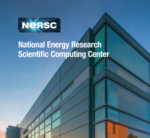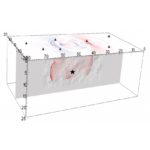Industry analyst firm Intersect360 has released partial results from an HPC end-user survey identifying the top user-rated processors, servers and cloud vendors. The key finding, according firm CEO Addison Snell: the disconnect between the HPC users, who want integration of Nvidia GPUs with CPUs from Intel or AMD, over against HPC vendors developing their own integrated solutions.
HPE (Cray) SVP, HPC Luminary Steve Scott Leaving for Microsoft
In news disclosed via tweet, Microsoft Azure Principal Program Manager for HPC & Big Compute Evan Burness disclosed that Steve Scott, long-time industry luminary and senior manager at Cray, is leaving HPE for Microsoft to become technical fellow and corporate vice president of hardware architecture. Mostly at Cray off and on for nearly 30 years […]
NERSC Finalizes Contract for Perlmutter Supercomputer
NERSC has moved another step closer to making Perlmutter — its next-generation GPU-accelerated supercomputer — available to the science community in 2020. In mid-April, NERSC finalized its contract with Cray — which was acquired by Hewlett Packard Enterprise (HPE) in September 2019 — for the new system, a Cray Shasta supercomputer that will feature 24 […]
Shaheen II Supercomputer to power COVID-19 research
KAUST has opened a call for proposals for COVID-19 research to be run on the Shaheen II supercomputer and related resources. Shaheen II joins many supercomputers around the world that have recently reallocated a portion of their resources to campaigns to model the pandemic. “In related news, “COVID-19 and High Performance Computing” is the subject of a special session of the now virtualized ISC 2020 conference, according to Professor David Keyes, Director of KAUST’s Extreme Computing Research Center, who is the Program Chair of the event.”
Supercomputing the San Andreas Fault with CyberShake
With help from DOE supercomputers, a USC-led team expands models of the fault system beneath its feet, aiming to predict its outbursts. For their 2020 INCITE work, SCEC scientists and programmers will have access to 500,000 node hours on Argonne’s Theta supercomputer, delivering as much as 11.69 petaflops. “The team is using Theta “mostly for dynamic earthquake ruptures,” Goulet says. “That is using physics-based models to simulate and understand details of the earthquake as it ruptures along a fault, including how the rupture speed and the stress along the fault plane changes.”
Accelerating vaccine research for COVID-19 with HPC and AI
In this special guest feature, Peter Ungaro from HPE writes that HPC is playing a leading role in our fight against COVID-19 to support the urgent need to find a vaccine that will save lives and reduce suffering worldwide. “At HPE, we are committed to advancing the way we live and work. As a world leader in HPC and AI, we recognize the impact we can make by applying modeling, simulation, machine learning and analytics capabilities to data to accelerate insights and discoveries that were never before possible.”
Video: The Impact of the Cray Acquisition on HPC Storage
Editor’s note: We’re sorry. This video is no longer available. Cray is now an HPE company. More information on Cray storage is available online. Sign up for our insideHPC Newsletter
DOE INCITE program seeks proposals for 2021
The DOE INCITE program has issued its Call for Proposals. “Open to researchers from academia, industry and government agencies, the INCITE program is aimed at large-scale scientific computing projects that require the power and scale of DOE’s leadership-class supercomputers. The program will award up to 60 percent of the allocable time on Summit, the OLCF’s 200-petaflop IBM AC922 machine, and Theta, the ALCF’s 12-petaflop Cray XC40 system.”
Video: What Does it Take to Reach 2 Exaflops?
In this video, Addison Snell from Intersect360 Research moderates a panel discussion on the El Capitan supercomputer. With a peak performance of over 2 Exaflops, El Capitan will be roughly 10x faster than today’s fastest supercomputer and more powerful than the current Top 200 systems — combined! “Watch this webcast to learn from our panel of experts about the National Nuclear Security Administration’s requirements and how the Exascale Computing Project helped drive the hardware, software, and collaboration needed to achieve this milestone.”
Podcast: A Look inside the El Capitan Supercomputer coming to LLNL
In this podcast, the Radio Free HPC team looks at some of the more interesting configuration aspects of the pending El Capitan exascale supercomputer coming to LLNL in 2023. “Dan talks about the briefing he received on the new Lawrence Livermore El Capitan system to be built by HPE/Cray. This new $600 million system will be fueled by the AMD Genoa processor coupled with AMD’s Instinct GPUs. Performance should come in at TWO 64-bit exaflops peak, which is very, very sporty.”










